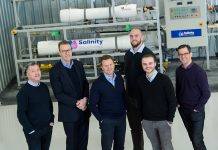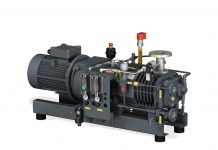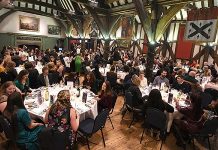Liverpool in general
Liverpool is a city in the metropolitan county of Merseyside, famous for; the Beatles, the city wide iconic architecture and “scousers”. Two football teams, Liverpool and Everton who play on opposite sides of Stanley Park on the outskirts of the city centre. Also for the world famous Grand National horse race which takes place at Aintree Racecourse in April each year and has been “running” since 1837.
Transport Liverpool
Liverpool is linked by the M62 and indirectly linked to the M6, M57 and M58. The Mersey tunnels also connect Liverpool with the Wirral and smaller roads make Liverpool accessible from Wales, Cheshire, Warrington, Runcorn, St Helens etc. Two rail networks support Liverpool including a line which connects to the airport. The local rail network is one of the busiest and most extensive in the country. Liverpool airport, also known as Liverpool John Lennon airport services the UK and Europe and carries on average 5.3 million passengers each year. The port of Liverpool is one of Britain’s largest ports. The ferry terminal between the Pier Head, Birkenhead and Wallasey is also a useful transport link but it is also a tourist attraction made famous largely due to “Ferry across the Mersey” song.
History of Liverpool
The history of Liverpool dates back to 1190. Cotton was one of the main products of ‘Liuerpul’ as it was originally known in 1190. Liverpool was the world leading market in Cotton. Liverpool was first linked by canal to Manchester in 1721, the St. Helens coalfield in 1755, and Leeds in 1816. In 1830, Liverpool became home to the World’s first inter-urban rail link to another city, Manchester, through the Liverpool and Manchester Railway. Liverpool’s docks and manufacturing industries went into decline during the 1970’s and 80’s and unemployment was well above the national average.
Since the mid 90’s Liverpool has revived itself, became Capital of Culture in 2008 and the Liverpool economy grew faster than the national average partly due to the construction of the Liverpool One Centre and significant regeneration projects to have taken place in the city include the new Commercial District, King’s Dock, Mann Island, the Lime Street Gateway, the Baltic Triangle, RopeWalks and the Edge Lane Gateway. All projects could however soon be eclipsed by the Liverpool Waters scheme which if built will cost in the region of £5.5billion and be one of the largest megaprojects in the UK’s history. Liverpool Waters is a mixed use development which will contain one of Europe’s largest skyscraper clusters.
In 2014, Liverpool is host to The International Festival for Business (IFB), the largest global concentration of business events during 2014. The 50-day festival runs across 7 weeks in June and July and will attract business delegates and trade intermediaries from around the world. One of the IFB themes for the event is manufacturing, science and technology. Part of the IFB 2014’s prime objectives is to foster new business relationships and opportunities that may lead to direct commercial trade and investment outcomes for UK companies of all sizes, across all sectors. Chemicals Northwest along with Brabners are hoping to run an event following on from the supply chain event in March alongside the IFB, keep an eye out for further details.
Our members in Liverpool
Out of the 156 member companies in Chemicals Northwest membership, 16 are from the Liverpool and Merseyside region. 7 of these are chemical manufacturers including one from the pharmaceutical industry. Breakdown of the other 9 include environmental companies, legal and logistic and technical service providers.
Facts about Liverpool
Liverpool’s is home to the World’s first fully electrically powered overhead railway, the Liverpool Overhead Railway, which was opened in 1893 and so pre-dated those in both New York and Chicago.
For periods during the 19th century the wealth of Liverpool exceeded that of London itself and Liverpool’s Custom House was the single largest contributor to the British Exchequer.
Railways, ferries and the skyscraper were all pioneered in Liverpool, together with the first societies for animal and child protection, the first schools for the blind, for working-men, and for girls. Liverpool was the port of registry of the ocean liner, the RMS Titanic.
With thanks to Wikipedia (en.wikipedia.org/wiki/Liverpool) and the International Festival for Business website www.ifb2014.com/About-IFB-i2 for providing the information on this page.













